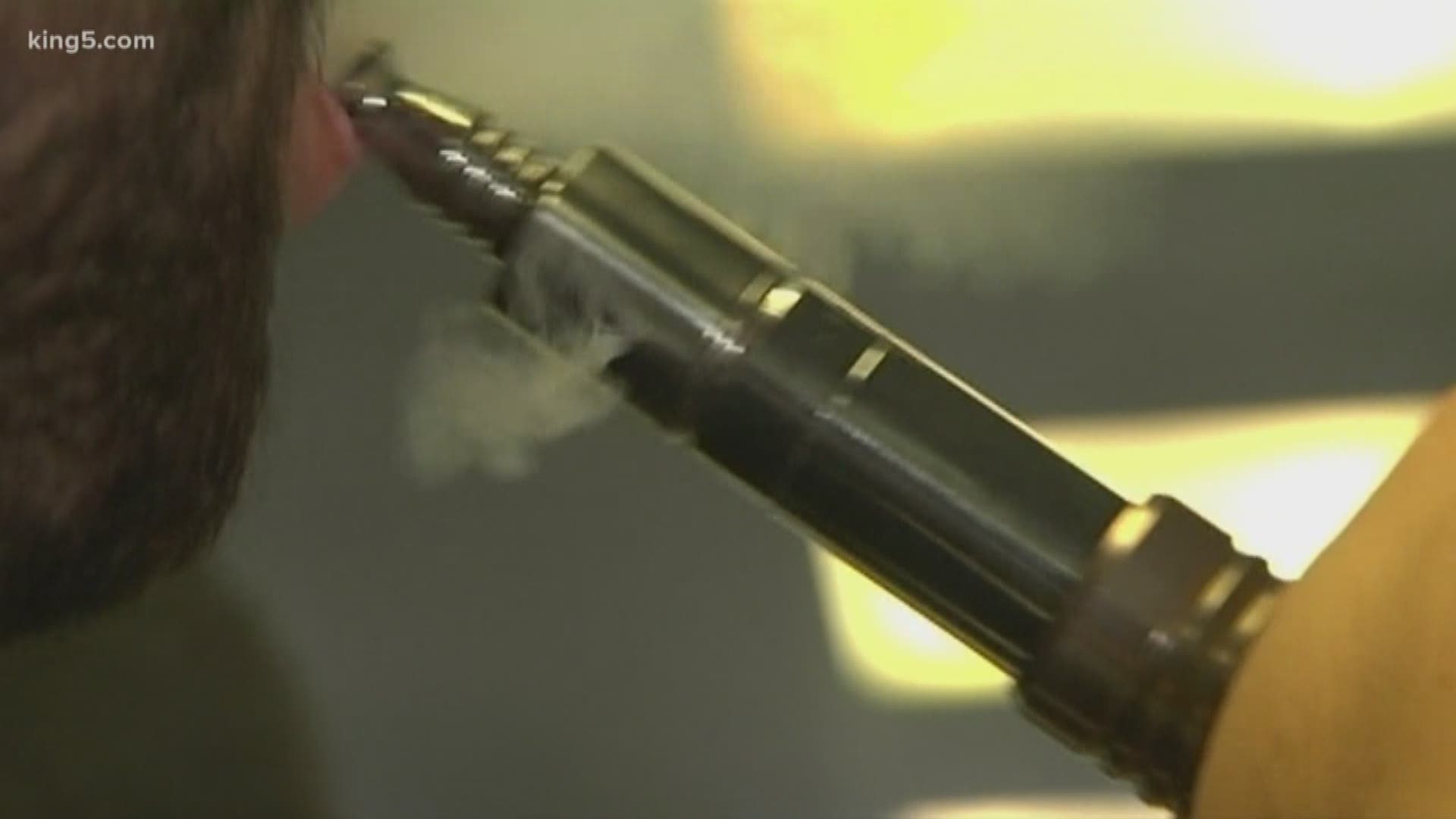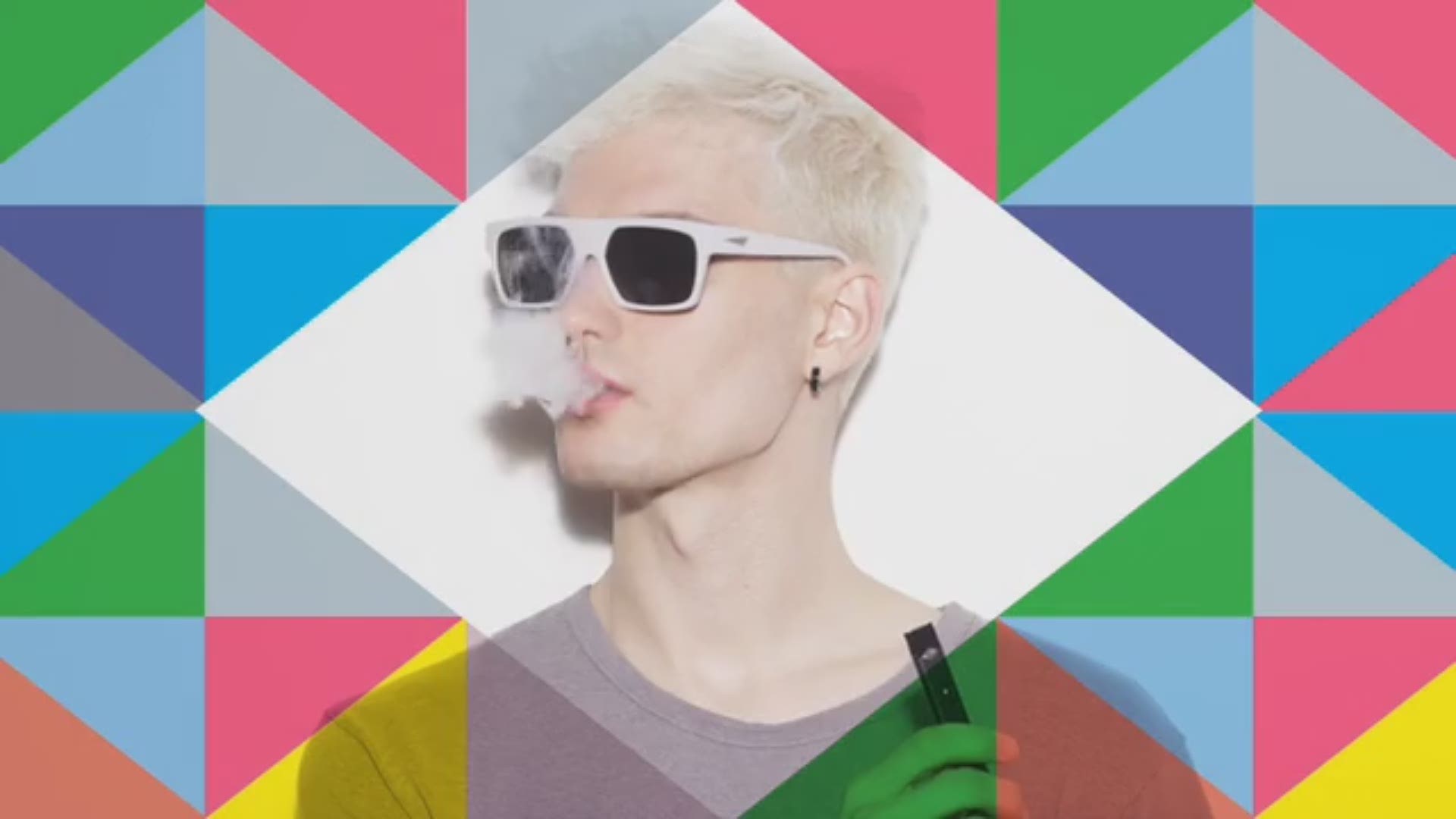OLYMPIA, Wash. — Washington Attorney General Bob Ferguson filed a consumer protection lawsuit on Wednesday against e-cigarette company JUUL.
The lawsuit assets that the company violated the state's Consumer Protection Act by designing and marketing its products to appeal to minors and deceiving consumers about the addictiveness of its products.
JUUL also failed to meet Washington state's tobacco vapor product licensing requirements, Ferguson lawsuit asserts. The lawsuit claims that every sale of a JUUL device from August 2016 until April 2018 was unlawful in Washington state.
“JUUL put profits before people,” Ferguson's office said in a news release. “Pushing unfair and deceptive marketing strategies appealing to youth, the company fueled a staggering rise in vaping among teens. JUUL’s conduct reversed decades of progress fighting nicotine addiction, and they must be held accountable.”
Marketing targets underage users, Ferguson's office says
When JUUL launched its products in 2015, it employed the “Vaporized” campaign on major social media platforms, including Twitter, Instagram and Facebook, Ferguson's office said. The campaign featured young models with bright colors.
The flavors featured in the campaign included mango, “Cool Cucumber,” “Cool Mint,” and “Crème Brule,” which made the products more appleaing to younger customers, Ferguson's office said.
Ferguson's office said the company also encouraged its social media followers to voluntarily post about its products, hiring “brand ambassadors" selected for their influence on social media platforms. These brand ambassadors were recruited because of their established following as trendsetters for youth.
JUUL’s advertisements often copied themes from traditional cigarette advertisements that were later banned for their appeal to youth, Ferugson's office said. It used sharp patterns, bright colors and young models, mimicking decades of similar ads used by tobacco brands.
"JUUL knew its marketing tactics fueled underage use of its products, yet took little to no action to stop it," Ferguson's office wrote in the release. "A 2018 study of JUUL’s Twitter audience showed that 80 percent of its followers were between 13 and 20 years old. Many teenage users voluntarily posted about JUUL products, including images and videos showing underage use of the products."
JUUL downplayed addictiveness of product
Ferguson's office said JUUL’s initial marketing of its products avoided mentioning that they contained nicotine. The company only began disclosing the fact that its products contained nicotine when the federal government required that disclosure.
JUUL entered the market with a 5% concentration of nicotine, compared to most e-cigarette liquids on the market that had 1 to 2% nicotine concentration, Ferguson's office said. Three percent nicotine concentration was considered high and intended for people accustomed to smoking two packs of cigarettes per day.
JUUL illegally distributed product for years without a license
For nearly two years, every single JUUL sale in Washington state was unlawful due to the company's failure to follow basic licensing requirements, Ferguson's office said.
In August 2016, Washington imposed specific requirements for the distribution and delivery of vapor products into the state. The company was fully aware of the deadline for completing its licensing for JUUL products, corresponding with state regulators about the application process, Ferguson's office said.
JUUL failed to complete the application process and did not obtain the required licenses until April 9, 2018, according to Ferguson's office.
Tens of thousands of Consumer Protection Act violations
Ferguson’s lawsuit asserts JUUL committed tens of thousands of violations of the the Washington State Consumer Protection Act, which prohibits unfair and deceptive business practices.
The Consumer Protection Act allows a maximum penalty of $2,000 per violations. By law, penalties go to the state general fund.
Ferguson’s lawsuit also seeks the surrender of unlawful profits and asks the court to order JUUL to cease its "unlawful marketing tactics."
On Aug. 13, Ferguson filed a separate lawsuit against an online vaping retailer for selling and shipping tobacco products in Washington without verifying the ages of its customers.


